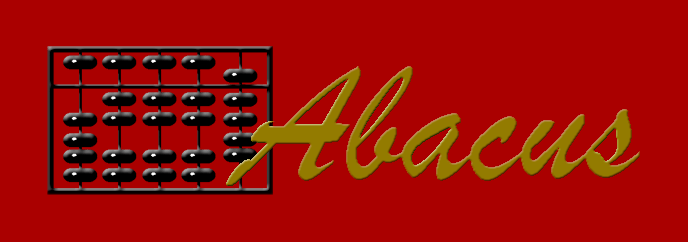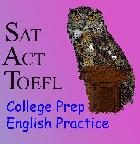- Abacus-es Home
- Featured Classes
- Public Speaking
- Advanced Writing
- Practical Music Theory
- Great Books Class
- Memory Skills
- Shakespeare
- Writing Class Online
- ESL Class
- German
- AP Classes
- AP Calculus
- AP Statistics
- AP US History
- AP Lit. & Comp.
- AP European History
- AP Psychology
- English Classes
- Advanced Writing
- College Prep English
- Shakespeare
- Online English Class
- ESL Class
- AP Lit. & Comp.
- Great Books Class
- Great Books for Children
- Beginning Writers A
- Beginning Writers B/C
- Intermediate Writers A
- Intermediate Writers BC
- Mathematics Classes
- Elementary Math
- Advanced Basic Math
- Consumer math
- Pre-algebra
- Algebra 1
- Geometry
- Algebra 2 with trig
- Pre-calculus
- Advanced Calculus
- AP Calculus
- AP Statistics
- Fine Arts Classes
- Music Theory
- Traditional Music
- Shakespeare
- Artistic Explorations
- Beginning Ceramics
- Perspective Drawing
- Photography
- Theater/Acting
- Model Making
- History Classes
- AP US History
- AP European History
- Battlefield Modelling
- Other Classes
- Memory Skills
- Smart Study Skills
- German
- Geography
- Chess
- Spanish
- Classical Hebrew
- Microsoft Word
- Microsoft Powerpoint
- AP Psychology
- Skymountain Classes
- Homeschool Links
- Online Classes
- Homeschool Song
- CHN Expo Resources
- Free University Resources
- SAT Practice
- Homeschool Resources
- Children's Books
- Studying Online
- Writing Class Online
- Math and English Tutoring
- Online Lectures
- Online Audio Books
- Homeschool Thoughts
- Online Higher Education
- Spoken English Example Videos
- Accredited degrees
- Online Classes
- Free Education
- Free Lectures by Abacus
- Free Online classroom
- The Use of "like"
- Grammar Resources
- PCC Schedule of Classes
- Glendale CC Classes
- Citrus CC Classes
- Mt SAC Classes
- Rio Hondo Classes
- Trinity College London
- Oxford University Podcasts
- Cambridge Lectures
- Princeton Lectures
- MIT World
Homeschooling Resources
Online Study
Study Issues
Community College Classes
University Resources
The Ubiquitous Use of "Like" in Speech has Illustrious Precedent
How Oxford scholars and valley girls suffer from the same like "verbal tic" as it were
Many teachers and logophiles deplore the rampant usage of the word "like", which, in the speech of some, mostly young, Americans, is sprinkled liberally throughout every sentence. Most dictionaries do not attempt to define this most common usage of the word and to some extent it defies definition. It appears to function as meta-language or possibly as audible punctuation, when indeed it has any function at all, and generally seems intended to draw attention to the following word or phrase as if to say somewhat apologetically: "This may not be just the right way to say this, but here it is." It may precede any part of speech: "He like lurched into the like shed and offered the thespians a like enormous decomposing turnip." (See our "Like" practice playsheet)
Interestingly, very similar semi-apologetic self-referential language has been in common use for much longer than "like" has, and has also tended to become habitually overused. This expression however, has been largely a shibboleth of the academic elite. I am referring now to the phrase "as it were." Usually regarded as an equivalent to "so to speak," it too draws attention to an expression, which it may either precede or follow, and seems also to convey an apologetic tone. Though seldom used with quite the frequency of the monosyllabic "like," it does dominate the speech of some scholars. "This unctuous kerfuffle, as it were, cannot be sustained for long unless we can put our hands on some more onion gravy."
One of the great contemporary artists of the English language, Christopher Hitchens, describes in his "The Other L Word" how he has attempted with some success to combat this use of "like" in his classroom, maintaining that "you have to talk well in order to write well, and you can't write while using 'like' as punctuation." Professor Hitchens himself has been known to use "as it were" from time to time, but, unlike some of his Oxbridge comrades, does so judiciously and in keeping with his own admonition: "A speech idiosyncrasy is really justifiable only if it's employed very sparingly and if the user consciously intends to be using it." In one specific case, he uses it to highlight and perhaps provide an anemic apology for a rather clever pun: "I was also struck by the number and variety of animals living cheek by jowl, as it were, amid the buses and taxis, with the human population." (First They Came for the Pigs, Slate, Sept. 28, 2009).
Thus in multiple environments a need for this type of apologetic meta language exists, and has been met by very different expressions which seem to have established themselves inextricably in our language culture. One interesting approach to the problem might be for those addicted to the use of "like" to try substituting "as it were" and vice versa. The jarring incongruity that would result might not solve the problem at all, but it would certainly make the speakers acutely aware of the verbal habits they have developed.
|
|
|
Bookmark this page to: |
|
|

 Advanced Writing text for the student with little time and a low boredom threshold
Advanced Writing text for the student with little time and a low boredom threshold